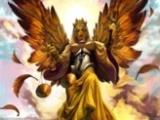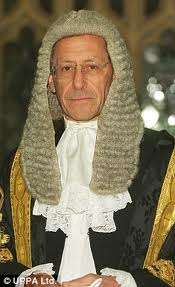Attorneys and Judges Astrology
‘Whoever fights, whoever falls
Justice conquers evermore.’ –
Ralph Waldo Emerson



Life on earth is a journey in which we are thrown at crossroads to choose a way ahead of. Though it is trodden, the path poses challenging puddles from which some pedestrians cannot escape. The unlucky few undergo a trauma – be it with a partner over relationship, the custody of kids, the neighbours grievances, the breach of trust, the traffic issues, the gender abuses, fraudulent checks, murder and ….. Here is our Lord Justice, next to Brahma, sitting at the court removing the tears of the innocents and rewriting the life of many to breathe a fresh air with a single note on a paper. Shall we analyse the astrological nuances in the making of Judges and of course their ‘pen’ too?
Ancient Rome adopted the image of a female Goddess of Justice, called as 'Justitia'. Her modern iconography adorns courthouses and courtrooms.
Angel of Justice and Harmony

The ancient Jewish and Christian text Book of Enoch names Raguel as one of seven archangels who judge all who rebel against God's laws. Raguel means "friend of God."
He is known as the angel of justice and harmony. He works for God's will to be done in human relationships, so they can experience fairness and peace. Raguel is often depicted holding a judge's gavel, which represents his work fighting injustice in the world.
Legal System in Ancient Civilization
The Romans had the origin of Justice System from 439 BC to AD 529. The first legal text is the Law of the Twelve Tables dating from mid 5th century BC. The Greek Law giver Solon visited Egypt in the 6th century BC, studied their law and adopted many aspects of it into the legal system of Athens. In ancient India, crime and sin were distinguished as an offence against the state as well as against God. The so-called Hinduism is formulated on the basis of the work Manusmriti (Law of Manu). According to Manu, the judicial proceedings comprised of four parts, namely complaint, reply, evidence and judgement. The replies included admission, denial and special plea. There were three types of evidences like document, possession and witness. If nothing worked out well, divine ordeals were prescribed.
Today’s Court System
Daniel Webster says, “Justice is the greatest concern of man on earth”. It is a concept of fair, moral impartial treatment of all persons, in the eye of law. It is the lawyer who breathes life into the constitution standing at the bar of justice defending the rights of citizen’s perhaps his client’s. He is a preserver and a protector while perpetuating the rights of citizens, both individual and business. There are two types of trials such as criminal and civil. In a criminal trial, actions are taken as a result of malicious intent.
The civil trials are disputes between the parties.
In criminal trials, the government is the prosecution. In civil trials, the party initiating the action is called the plaintiff. The unsatisfied parties in trial courts will take the case to a court of Appeals. Here two attorneys attempt to convince a panel of five judges that the law to be favoured their side. The unsatisfied parties at the appellate court can ask for a writ of certiorari, which helps for an appeal to the state Supreme Court. Four Justices must vote to hear it in order to have it brought before the court.
The role of judge in a court
A judge is an official who presides over court proceedings, either alone or as part of a panel of judges. He must be impartial in conducting the trial. He hears all the witnesses and any other evidence presented by the parties of the case, assesses the credibility and arguments of the parties and then issues a ruling on the matter at hand based on law and his own personal judgment.
Judges are addressed as ‘Your Honour’ or ‘My Lord’ in India, in Japan as ‘Saibankan’, in Bulgaria as ‘Comrade’, in Malaysia as ‘Tuan’ or ‘Puan’ (sir/madam) and ‘Yang Arif’ (my lord), in Russia as ‘Vasha chest’ (your honour), in Spain as ‘Su Sunoria’ (your lordship) and in UK as ‘My Lord’ and ‘Your Worship’.
The significance of Poetry in Court
Portia’s speech on the ‘the quality of Mercy’, at the court scene in Shakespeare’s play ‘The Merchant of Venice’, evinces the importance of articulacy as a lawyer.

Lord Justice Wall, in the court of appeal in UK, quoted Philip Larkin’s most famous poem ‘This be the Verse’,
“They fuck you up, your mum and dad
They may not mean to, but they do
They fill you with the faults they had
And add some extra, just for you.”
The intension of the Justice was to change the mind of the warring parents who created a bad image on the psyche of their kids.

Lord Justice Sedley, a senior appeal Judge quoted Shakespeare’s Hamlet in a dispute between neighbours over a boundary. In 1981, a California Court turned to Bob Dylan’s song in a case about who can bring a law suit in a federal court,
‘You don’t need a weather man to know
Which way the wind blows’
--
the court wrote.
The Planetary combinations to become a Judge

The government gives authority to a person as a ruler turning the law to separate the wheat from the Chaff. In order to grant justice, he shouldn’t hesitate to sacrifice his whims and fancies. He must be neutral.
The planet Sun stands for Authority as a King, and representative of Government. Saturn denotes an affected person seeking justice in court. There must be a link between these two planets in the dasa of a judge’s horoscope. Raja yogas like Dharma Karmathipathi yogam, Rucha Yogam, Sasa Yogam and Hamsa Yogam will add strength to a judge.
Will it be enough for an astrologer to have his say on a judge? Never. Many more secrets can be unraveled if at all the occasion arises and the demand of a person knocking on the door.